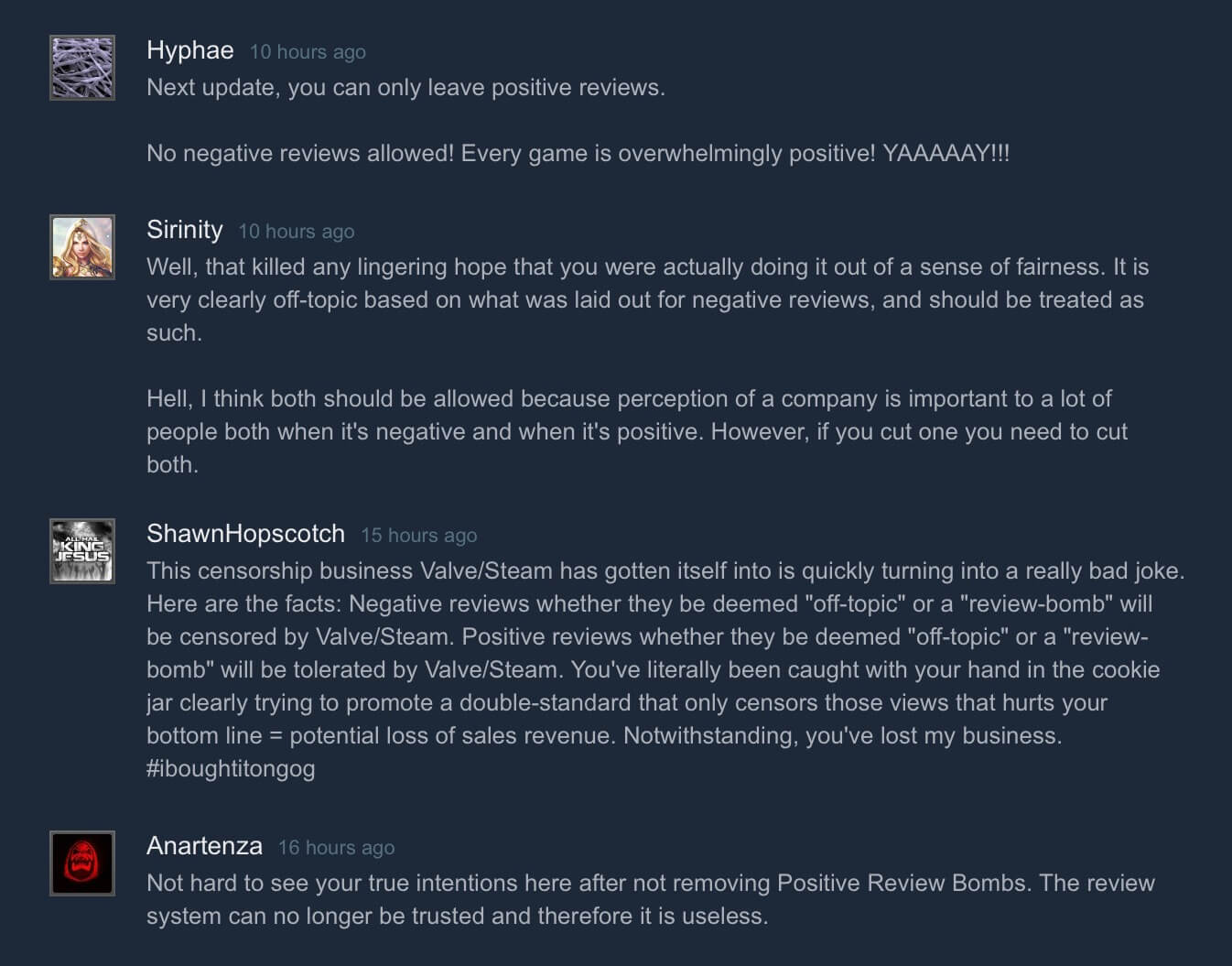Earlier this year, Valve, the company behind the online video games store Steam, changed its Review Score calculation to remove what it deemed to be “off-topic review bombs.” Many gamers believed that this decision was being made to censor negative reviews and protect developers from backlash when they make poor decisions. Now Valve has once again changed the way that supposedly “off-topic review bombs” affect the Steam Review Score and said that “positive review bombs” will sometimes be allowed.
Valve made the announcement in a post titled Positive “Review Bombs” which describes how in the wake of the Notre Dame Cathedral fire in April, Ubisoft’s decisions to make make Assassin’s Creed: Unity free through its Uplay app and commit funds towards rebuilding the Notre Dame Cathedral resulted in a large number of positive reviews being left for the game on the Steam. Valve says that some of these reviews reference Notre Dame and the free giveaway of the game. These reviews seemingly match the criteria Valve laid out in its original definition of “off-topic review bombs”:
“We define an off-topic review bomb as one where the focus of those reviews is on a topic that we consider unrelated to the likelihood that future purchasers will be happy if they buy the game, and hence not something that should be added to the Review Score.”
Based on Valve’s rules, these reviews should not be included in the Steam Review Score.
However, in this instance, Valve says that “context” also comes into play when deciding if reviews are really “off-topic” and that since it’s not sure whether these positive reviews are related to Assassin’s Creed: Unity now having the “world’s best” virtual recreation of the Notre Dame Cathedral (which would be “on-topic” if it increases the value players are getting from the game) or Ubisoft’s donation towards rebuilding the cathedral (which would be “off-topic”), it’s not going to remove this “positive review bomb” from the Steam Review Score.
This is the first time Valve has publicly announced an exception to its “off topic review bomb” rules on the Steam Blog. What’s notable about Valve’s announcement is that it focuses on this being a “positive review bomb” yet it has never made similar exceptions for what it deems to be “negative review bombs.”
If Valve continues making similar exceptions in the future, it will inflate Review Scores across Steam because all the supposedly “negative review bombs” will be scrubbed while some “positive review bombs” will be allowed to remain.
It will also add more weight to the claims that Valve’s “off-topic review bomb” rules are really a means to censor negative reviews and shield developers from the consequences of making decisions that are unpopular with fans of their games.
Additionally, exceptions like these mean that instead of being an objective reflection of game reviews, the Steam Review Score is increasingly becoming a subjective reflection of these reviews based on Valve’s determination of whether the reviews are “positive,” “off-topic,” or left in the “right context.”
Many Steam users are reflecting these concerns in their responses to this announcement and have called out Valve’s double standard, the impact it has on the integrity of the Steam Review Score, and the lack of fairness in the process.














